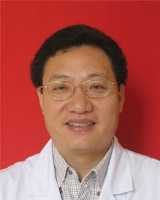21 Jun Small Study Demonstrates Benefit of Stem Cell Transplantation in Hearts ‘Broken’ By STEMI
MedicalResearch.com Interview with:

Dr. Fu Guosheng
Fu Guosheng MD
Professor and Chairman, Department of Cardiology
Sir Run Run Shaw Hospital, College of Medicine
Zhejiang University
Hangzhou, China
MedicalResearch.com: What is the background for this study?
Response: Acute myocardial infarction (AMI) remains a major cause of long term morbidity and mortality worldwide. Although we can re-vascularize the occluded vessels by cardiac intervention or coronary artery bypass graft (CABG), it is not helpful for the damaged myocardium, which urges us to find a new therapeutic method. An increasing body of evidence from a wide range of experimental animal studies and clinical trials suggests that endothelial progenitor cell (EPC) transplantation can repair “broken” heart by involving direct angiogenesis and secreting protective paracrine factors, which has a bright prospect for clinical application. However, transplantation of autologous EPC has numerous limitations, including the limited supply of expanded EPC, the impaired function and activity of the transplanted cells, and so on. Therefore, it is desirable to develop novel proangiogenic strategies that improve the efficacy of EPC transplantation.
MedicalResearch.com: What are the main findings?
Response: 10 patients with STEMI were included, they were randomized to 2 groups:
EPC transplantation group (control group, n=5) and Tβ4-pretreated EPC transplantation group (experimental group, n=5). After 6 months of follow-up, the average 6-minute walking distance was increased by 38.2m (from 263±42m to 302±34m) in control group and 75.7m (from 264±42m to 340±44 m) in experimental group, the average difference of 6-minute walking distance was 37.5m (95% CI: 28.7 to 56.3m; P<0.01). In addition, the cardiac function in the experimental group was more significantly improved than that of the control group. There were no severe complications related to the procedure occurred in either group during the follow-up.
MedicalResearch.com: What should readers take away from your report?
Response: Our pilot study suggested that Tβ4-optimized EPC transplantation appeared to be feasible and safe, and might have beneficial effects on exercise capacity and left ventricular function in patients with STEMI.
MedicalResearch.com: What recommendations do you have for future research as a result of this study?
Response: Firstly, the major limitation of this study was the small number of patients because the government pause all the researches about stem cell transplantation in our country for a while, which affected the persuasion of this study. Therefore, large, multiple center, randomized, double blind clinical trials needs to be done to confirm the effectiveness and safety of autologous Tβ4 pre-treated EPC transplantation in the treatment of STEMI. Besides, the duration of follow-up is short, long term efficacy and side effects remain to be further observed. Moreover, the number of EPC and the course of therapy need to be further clarified for the transplantation of EPC.
MedicalResearch.com: Thank you for your contribution to the MedicalResearch.com community.
Citation:
Cytotherapy. 2016 Jun 7. pii: S1465-3249(16)30380-2. doi: 10.1016/j.jcyt.2016.05.006. [Epub ahead of print]
Safety and efficacy of autologous thymosin β4 pre-treated endothelial progenitor cell transplantation in patients with acute ST segment elevation myocardial infarction: A pilot study.
Zhu J1, Song J1, Yu L1, Zheng H1, Zhou B1, Weng S1, Fu G2.
Note: Content is Not intended as medical advice. Please consult your health care provider regarding your specific medical condition and questions.
More Medical Research Interviews on MedicalResearch.com
[wysija_form id=”5″]
Last Updated on June 21, 2016 by Marie Benz MD FAAD
